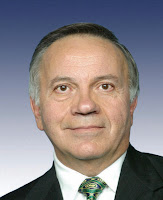Charlotte's rapid immigration growth continues to draw attention from those looking to understand the country's changing demographics.
We reported this week on a new report by the Woodrow Wilson International Center for Scholars that stated Latino immigrants feel alienated in Charlotte because of increasingly hostile public opinion and greater immigration enforcement.
We reported this week on a new report by the Woodrow Wilson International Center for Scholars that stated Latino immigrants feel alienated in Charlotte because of increasingly hostile public opinion and greater immigration enforcement.
Here is a copy of the 25-page report, “Charlotte: A Welcome Denied."
Interestingly, the Wilson Center report came on the heels of similar report by the Southern Poverty Law Center that found low-income Latinos living in Charlotte -- regardless of their status -- are routinely the targets of wage theft, racial profiling and other abuses due to an anti-immigrant climate “encouraged by politicians and media figures who scapegoat immigrants.”
It's unclear why the two studies came out so closely together, but it shows that the immigration debate continues to gain steam. It also shows, as experts have predicted, that Charlotte is becoming a place to study how America addresses issues of growth and community in the 21st century.Mecklenburg County has one of the fastest growing Latino populations in the country. It has jumped from nearly 7,000 people in 1990 to more than 80,000 in 2007. Many arrived illegally.
Law center researchers interviewed about 100 people in Charlotte, for the report "Under Siege: Life for Low Income Latinos in the South." Legal residents, illegal immigrants and U.S. citizens were interviewed, the authors said.
Excerpts from the report about Charlotte:
Janet, a Latina teen living in Charlotte, told researchers she endures taunts in school, even though she is a U.S. citizen.The SPLC also released the following survey results from Charlotte interviews:
“[T]hey’ll be like, ‘Oh well, you’re just Mexican, go back to Mexico.’ You know, ‘Learn English,’” she said. “I am not even Mexican. I am very proud of my background but it bothers me, the stereotypes.”
When Charlotte was known as a welcoming city for immigrants, it was at a time when it needed immigrant hands to build its skyline. More than one advocate noted how Latino immigrants “built this city” and that “undocumented hands” were responsible for many of the homes, skyscrapers and marble floors.
However, the terrorist attacks of Sept. 11, 2001, changed public sentiment as illegal immigration became a security issue. The Mecklenburg County Sheriff ’s Office also implemented a 287(g) program, an agreement that allowed the department to assist Immigration and Customs Enforcement.
This program has been credited with fueling anti-immigrant sentiment. Talk radio in the city has been cited as a force in changing the perception of Latino immigrants from a community that helped build a better city to one that threatens the city itself.
- More than half (52 percent) of the survey respondents said there is racism when looking for a house in this area.
- 66 percent said their willingness to speak to police has been affected by the county sheriff ’s 287(g) agreement with ICE.
- 28 percent said they have performed work for which they were not paid.
- 73 percent of those surveyed said they believe Latinos receive different treatment on the job.
- Nearly half of those surveyed (48 percent) said women were treated differently than men on the job.
Photos: Southern Poverty Law Center










